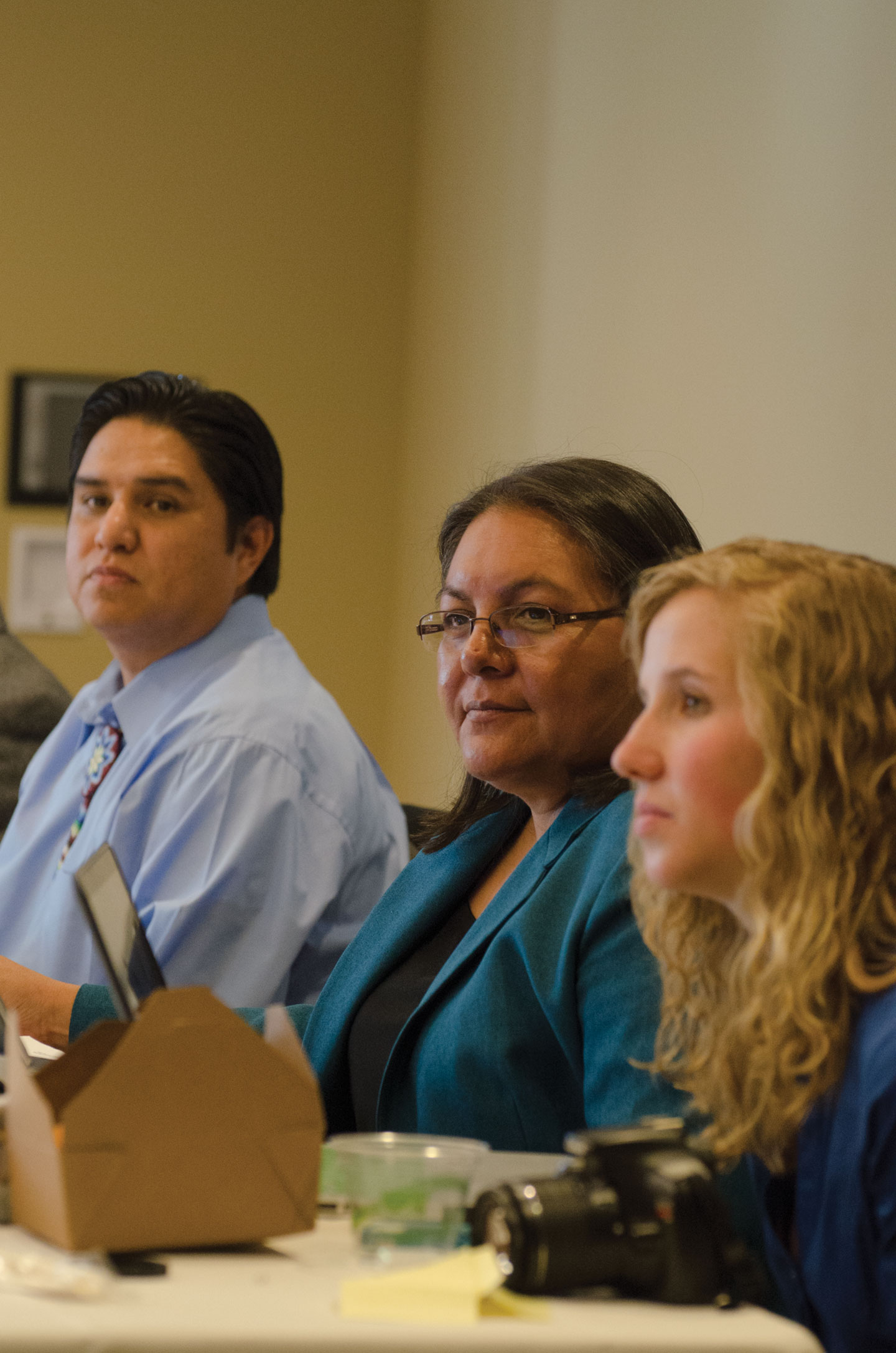Honor, respect, partnership: These were at the center of discussion during the Colorado Commission of Indian Affairs meeting on Friday, Dec. 13 at the History Colorado Center in Denver.
Southern Ute Indian Tribal Council Lady Pathimi GoodTracks met with Ernest House Jr., CCIA executive director, and Joseph A. Garcia, Colorado lieutenant governor. Other agencies present included the Colorado Department of Natural Resources, Department of Transportation and Department of Public Health. Juanita Plentyholes and Regina-Lopez Whiteskunk of the Ute Mountain Ute Tribe joined in the conference.
One topic brought to the table by the request of the Southern Ute Tribe dealt with health care in the community.
“We recently rolled out and overhauled our healthcare system for tribal members,” GoodTracks said. “We have been working for over a year to streamline and improve our delivery of healthcare to our [community]. … We provided new health coverage cards that will [advance] their access to local healthcare providers.”
GoodTracks said the tribe is also working on a tribal health assessment to better understand the needs of the tribal membership.
“That hasn’t been done in quite some time,” she said. “We continue to explore various options for doing so.”
The tribe is tasked with promoting its members health wherever they live, she said.
“One of the unique things about tribes and their membership … we remain citizens regardless of geographical location,” GoodTracks said. “Approximately one-third of our membership lives off the reservation, and that has been a challenge in providing healthcare to all of them regardless of where they choose to live.”
House said the state bears responsibility to support the tribe in its efforts.
“Back in 2011, the Department of Public Health, Department of Human Services, and Department of Health Care Policy and Financing all agreed to a state tribal consultation policy to work with tribes,” he said. “The focus in 2014 is to [develop] joint and independent work between state agencies and tribes. The health concerns in southwestern Colorado are really important.”
Plentyholes, vice chairman of the Ute Mountain Ute Tribe, jumped into the discussion and addressed the agencies.
“Some of the things we are in charge of as leaders and as players from different agencies is how we play together,” she said. “I’ve seen the deficiency on many reservations regarding the time it takes to respond to an issue, and I think we have to do our best to change that image. You are here to help the agencies and create a better quality of life on our reservations, so let’s try and do something about it.”
Conversation then shifted to a proposed tax exemption on reservations. Under federal law, on-reservation sales of goods and services to Indian tribes and tribal members are exempt from state and local sales taxes. The Southern Ute Tribe seeks legislation to confirm a sales tax exemption for such on-reservation sales for enrolled members.
“The purchase of automobiles for the tribes and tribal members, for example, would be more efficient,” GoodTracks said.
Motor vehicles sold to tribal members residing on the reservation would need to be delivered to the reservation by the vendor in order for the tax exemption to take effect. The proposed legislation would codify the existing law and not require the burden of on-reservation delivery.
“We have met with Executive Director House, representatives from the governor’s office, legislative counsel, and the Department of Revenue,” she said. “All have indicated support for the proposal.”
Since 1980, the state’s Department of Revenue has understood the exemption. Furthermore, there have also been discrepancies in recognition of the exemption by the state for sales made to tribal members.
“One of the other things the tribe is doing is we’re looking at upgrading our tribal members’ identification cards,” Goodtracks added. “We want these cards to be accepted not only statewide, but nationwide. [Tribal members] can forgo obtaining a passport and use the [tribal ID card] to travel outside the United States.”
House showed interest in that particular use of the cards.
“I find the ID and the use of it as a passport fascinating,” House said. “Are you aware of any other tribes that have been able to successfully get their cards used in that way?”
“There are a couple,” Goodtracks responded. “We are currently researching that.”
GoodTracks concluded with an acknowledgement of the strong relationship between the tribe and state.
“We all know the history and I think we’ve come a long way. We’re demonstrating not only on a tribal level, but to other states and other agencies,” she said. “The example that the state of Colorado has overcome the past, dealt with current situations, and now we look upon each other for assistance.”

